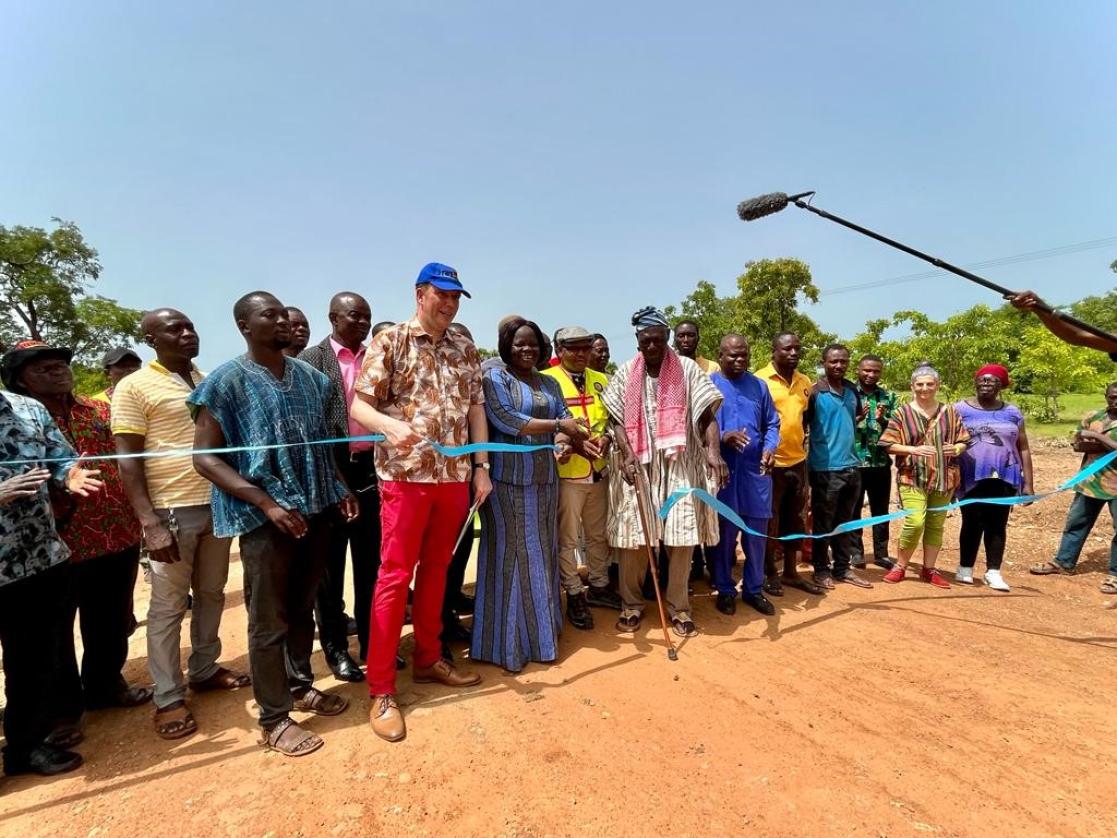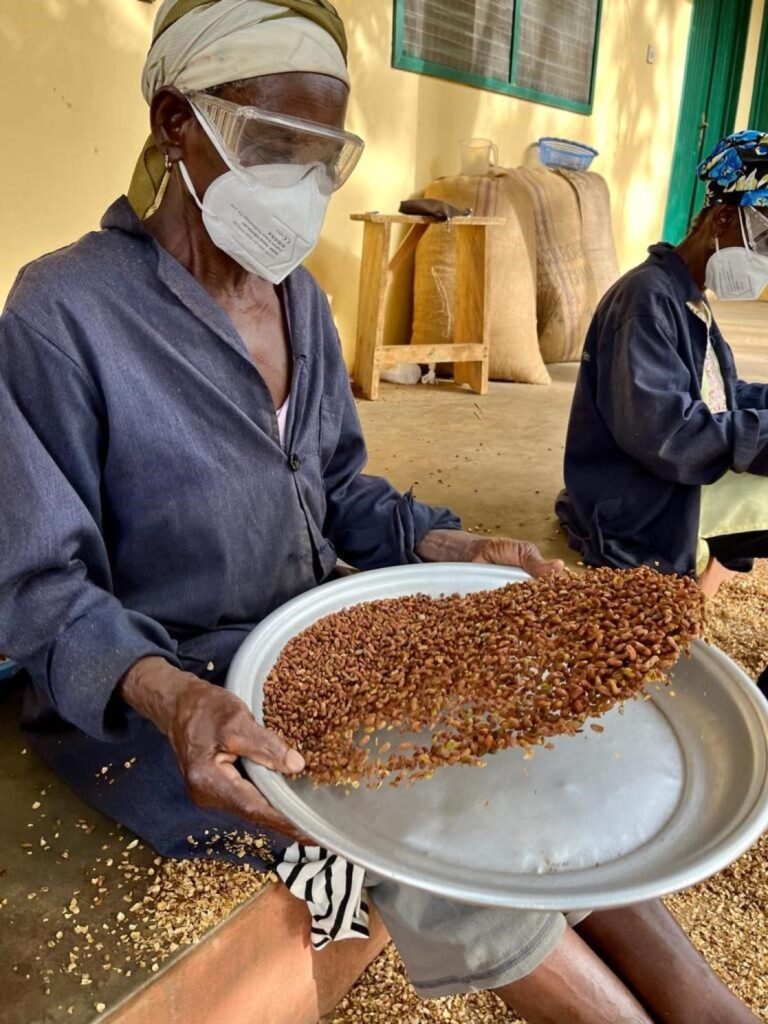Read in

Better and more resilient infrastructure is key to ensuring efficient agricultural practices and competitive agribusiness, both central objectives of the EU GAP. During their visit, the EU team visited two of the programme’s infrastructure-related projects. First stop at Dorimon- Dabokpa to commission the first kilometres of 670 kilometres of feeder road to be rehabilitated. Deputy Head of Mission, Pieter Smidt Van Gelder, noted: “The lack of efficient infrastructures is a major bottleneck to the development of agricultural production and processing. Our collective aim is to witness the transformative power these roads hold for the Upper West Region.”

The trip then took the EU team to Busa Dam, awaiting rehabilitation. To support better irrigation of farming land, the EU together with the French Development Agency (AFD) is supporting the rehabilitation and construction of dams, boreholes and pumping stations in the Upper West. Thanks to this €47 million Agricultural Water Management Project, over 6,000 smallholder farmers will benefit from irrigation. The work is due to start in 2024.
Thirdly, we met with the private sector. Farmers and business owners also need updating of their expertise to adapt to a changing market and unpredictable climate. Through the EU Market Orientated Agriculture Programme (MOAP) implemented by the German Development Cooperation (GIZ), the EU is providing key skills to several Micro, Small and Medium Sized Enterprises (MSMEs) working in agriculture and agribusiness. The EU team had the opportunity to attend the graduation of 26 MSMEs from one of MOAP’s training programmes on business skills. Mr Smidt Van Gelder congratulated them for “a remarkable achievement as you are now equipped with essential business entrepreneurial skills and the knowledge to access financial services. These tools will undoubtedly contribute to the development and sustainability of your businesses.”
Lastly, as part of the EU mission, the team paid a visit to a neem processing plant producing the first organic pesticide in the region. Beyond infrastructure and skills, sustainability is essential to ensuring that farming practices can stand the test of time and protect Ghana’s environment and biodiversity. Led by the Tibourataa Women Group of farmers with support from MOAP and the Upper West Regional Agricultural Department, the plant transforms the neem seeds into organic pesticide, essential for ensuring both quality of farming products, protection of biodiversity and securing the health of farmers.



